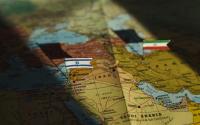 President Bush says the law does not need to be amended |
12 May 2006
What has USA Today reported?
It says that the NSA has been collecting telephone numbers in order to try to track terrorist suspects. The calls are listed, not listened to - but they would give clues as to patterns of calling and which numbers might be worth seeking a wiretap warrant for. One telephone company has refused to co-operate but three others have, so coverage is wide.
How does this tie in with the programme revealed in December?
The programme revealed by The New York Times in December authorised the NSA to listen in to phone calls which had one party in the United States. This one, which The Times did refer to briefly in December, is a data-gathering exercise, compiling numbers called, the time and duration. USA Today has revealed its scope. An administration official has broadly confirmed the story to several US media organisations.
Is the data gathering legal?
Some legal experts say it is not, on the grounds that there should be evidence of a crime first, but the Bush administration argues that the president is acting within his powers, as it did when the monitoring effort was first revealed in December. The administration says that the collection of numbers does not need a warrant and that the warrantless monitoring of phone calls originating or ending in the US is also legal.
Why is the eavesdropping programme controversial?
Because the NSA is normally required to get a warrant before it listens in to someone inside the United States. The warrant is sought from a special court known as the Foreign Intelligence Surveillance Court. Under the secret programme, someone with suspected links to a terrorist organisation who is in phone or e-mail contact with someone abroad can now be wiretapped without a warrant. Monitoring calls wholly within the US still needs a warrant.
Why did President Bush authorise it?
The administration argues that the procedure for getting a warrant from the special court is too slow and that in the war on terrorism it needs to act fast. This is no longer the age of listening in to Mafia leaders talking in well-known restaurants. Al-Qaeda figures use satellite and internet contacts at random. Mr Bush said in a speech: "And if they're making a phone call in the United States, it seems like to me we want to know why."
The administration says that a warrant request requires the approval in advance of too many government officials. And even though there is provision for a wiretap to be approved after it has started, this also is said to be too cumbersome.
What are the objections to it?
The objections are on civil liberty and constitutional grounds. The restrictions on eavesdropping inside the US grew out of the abuses during the Vietnam era when wiretapping for political purposes became widespread. In 1978, Congress passed the Foreign Intelligence Surveillance Act (FISA). This tried to balance civil liberty protection with the government's need to gather foreign intelligence. The act set up the special court to which applications for wiretap warrants had to be made. Critics of the current programme say that it circumvents these legal safeguards.
What are the constitutional issues?
The critics say that the president is exceeding his powers by ignoring the provisions of the Foreign Intelligence Surveillance Act and that the programme violates the Fourth Amendment against unreasonable searches. One open letter to Congress from a number of lawyers said: "The President cannot simply violate criminal law behind closed doors because he deems them obsolete or impracticable." The letter suggested that if the administration felt the FISA law was inadequate it should have gone to Congress to ask for an amendment.
What is the administration's defence?
It says that the president has the powers to act as he did. Attorney General Alberto Gonzales justified the programme in front of the Senate Judiciary Committee on two grounds. He said that under the constitution, the president as commander-in-chief had the right to conduct warrantless surveillance to gather intelligence especially in a time of war, which he argued this was. He quoted from a FISA review court ruling in 2002 that the president had "inherent constitutional authority to conduct warrantless foreign intelligence surveillance".
He also argued that FISA itself had effectively been amended by a joint resolution by Congress post 9/11 which authorised the president to "use all necessary and appropriate force" to prevent further attacks. The Supreme Court, he said, had approved a wide-ranging definition of the resolution.
Why did President Bush not seek an amendment to the law?
He argued that he did not need one, that it might not have been approved and would in any case, in the words of his assistant attorney general in a letter to Congress, "have tipped off our enemies concerning our intelligence limitations and capabilities".
How widespread is the eavesdropping?
The New York Times estimated in its original article that at any one time about 500 people in the US were being monitored. But as the list constantly changes, the total number wiretapped since the project started in 2002 must have risen to thousands.
The starting point was the capture of al-Qaeda operatives and their computers from which phone numbers were extracted. In turn people in contact with these numbers were subject to eavesdropping and so on in a widening circle.
Has it been successful?
It is not known given the secrecy of the operation, but the New York Times quoted officials as saying that "the eavesdropping programme had helped uncover a plot by Iyman Faris, an Ohio trucker and naturalised citizen who pleaded guilty in 2003 to supporting al-Qaeda by planning to bring down the Brooklyn Bridge with blowtorches". The officials also said an alleged plot involving fertiliser bomb attacks on UK targets had been exposed.
What precedents are there for this use of presidential powers?
This has been a constant issue in US history. In recent times, President Clinton ordered searches without warrants for foreign intelligence purposes and asserted the existence of such a right despite agreeing to place the implementation of such a right under the FISA court. President Roosevelt ordered the internment of US citizens of Japanese origin in World War Two. His order was upheld by the Supreme Court but was overturned in 1983. President Lincoln suspended habeas corpus in Maryland during the Civil War and ignored a state court ruling against him.
How does the US compare with European countries?
Europeans governments generally have fewer restrictions. In the UK, under the Regulation of Investigatory Powers Act 2000, it is the government not a court that authorises a wiretap. The power lies with the Home Secretary. A procedure justifying the interception has to be gone though to avoid violation of the European Convention on Human Rights and a Commissioner has oversight responsibilities but these are limited.
In France, wiretaps are authorised by judges, though the government is suspected of bypassing them sometimes. In the Netherlands, police have powers to wiretap if the crime being investigated is serious enough. In Greece there was a scandal recently when it was found that someone unknown was tapping into mobile phones of top government ministers and security officials during the Athens Olympics.






